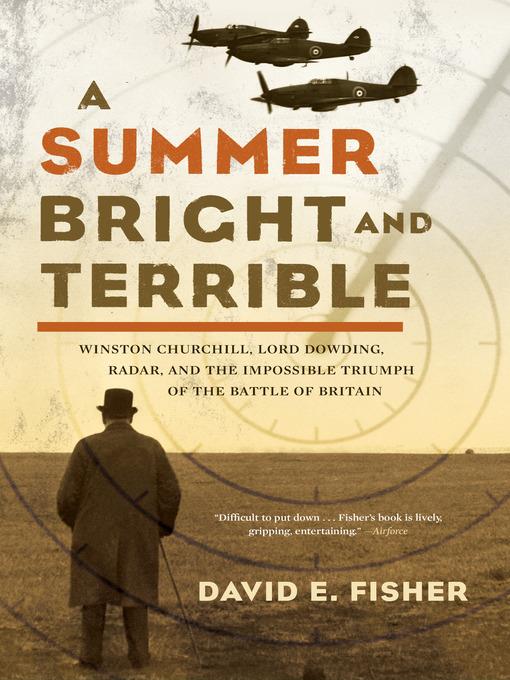
A Summer Bright and Terrible
Winston Churchill, Lord Dowding, Radar, and the Impossible Triumph of the Battle of Britain
کتاب های مرتبط
- اطلاعات
- نقد و بررسی
- دیدگاه کاربران
نقد و بررسی

October 15, 2005
Fisher's book about a lesser-known aspect of the Battle of Britain, the -Dowding System, - using radar for air defense, crackles with energy when describing the science behind the fledgling radar and the maneuvers of reckless pilots. Fisher (cosmochemistry & environmental sciences, Univ. of Miami; "A Race on the Edge of Time") also brings about real drama in describing the back-room political struggles between Churchill and Dowding's Royal Air Force (he was head of Fighter Command) in implementing the new and misunderstood tool of war. The author follows the progression of Lord Dowding from a committed, brilliant, yet vague air force commander to his loss of the post in late 1940 and transformation into a man more interested in paranormal phenomena and communing with his dead wife. Dowding's evolution should have been a riveting thread in the narrative, but instead the reader's sense of him never gains any momentum. Not recommended.
Freelance journalist Mortimer's compelling narrative of one terrible, deadly night of the London Blitz intertwines multiple eyewitness accounts throughout the intense raid by the German Luftwaffe. Mortimer ("Shackleton") supplies enough of the military facts to set the stage but allows the personal stories to be the main focus of the book. With perspectives from pilots (on both sides), firefighters, teenagers, and everyday families, his composite uniquely follows these people through several hours that changed their lives. Recommended for public libraries.
A prolific author of military fiction (e.g., "Goshawk Squadron") and some previous nonfiction, Robinson authoritatively takes on the myths surrounding the threat of a German invasion of Britain by sea in 1940. He has a wide command of the historical facts behind much of the perpetuated conventional wisdom and systematically lays out a case for how overblown the invasion scare was. Instead of the Spitfire pilots of the RAF, heroes of the Battle of Britain, preventing Hitler from launching an attack, Robinson argues that it was always British naval power that was standing by to defend and overwhelm an invasion. His arguments are compelling, but the writing and arrangement of topics is rather choppy. For military history collections only." -Elizabeth Morris, Illinois Fire Svc. Inst. Lib., Champaign"
Copyright 2005 Library Journal, LLC Used with permission.

October 15, 2005
Possibly few World War II battles are quite as myth-encrusted as the Battle of Britain. Accolades to the "few" extolled by Winston Churchill have prompted revisionist accounts such as Richard Overy's " Battle of Britain: The Myth and the Reality" (2001). Fisher's contribution to the subgenre sets aside the understandable attraction to Spitfires--versus-Messerschmitts, and tells the story of the British commander of the battle, Hugh Dowding. Unceremoniously forced into retirement during the battle, Dowding does not have the historical renown a victor can expect. To Dowding's most obvious trait--obstinacy--Fisher credits the man's success (and by implication, Britain's salvation). For Dowding, initially as the Royal Air Force's chief of technical research, and subsequently as head of Fighter Command, resisted numerous dubious ideas from on high; chaperoned by Churchill's childish excitement, the bad ideas, like sending Britain's fighter squadrons to France, could have had dire consequences but for Dowding's stout opposition. Featuring a lively narrative peppered with summary judgments, Fisher's profile of the eccentric Dowding merits the allegiance of the WWII audience. (Reprinted with permission of Booklist, copyright 2005, American Library Association.)

























دیدگاه کاربران